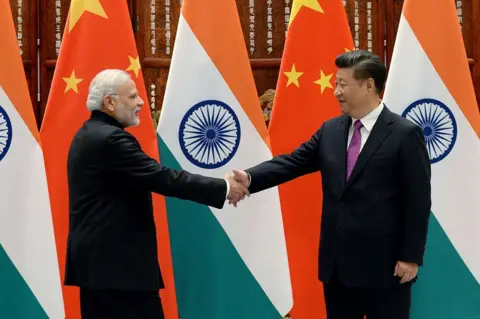When we think of heroes from World War II, the focus often falls on the actions of prominent figures. However, the unsung champions of history, like Kundanlal Gupta from India, deserve recognition for their bravery and empathy. Vinay Gupta, his grandson, recently shared that his grandfather helped Jewish families escape from the clutches of the Nazis, a tale that highlights extraordinary humanity in dire times.
Growing up in a modest household in Ludhiana, Kundanlal faced hardships from an early age. Risking his life, he helped several Jewish families during the rise of Adolf Hitler. He established businesses not only to provide jobs but to create homesteads for those refugees who fled Nazi-occupied Austria. The British government, however, deemed these Jewish families as "enemy aliens," further exacerbating their perilous plight.
Kundanlal's narrative reads like an epic saga; born in poverty, he rose to prominence through hard work, eventually evolving from a timber merchant to an influential figure. His numerous forays into various trades included a clothing business and even a matchstick factory. His life intersected with major historical figures, including Indian independence leader Jawaharlal Nehru.
Vinay Gupta’s book, "A Rescue in Vienna," sheds light on these forgotten stories, piecing together Kundanlal's extraordinary efforts through personal letters and testimonials from survivors. As the Nazi regime tightened its grip, Kundanlal offered sanctuary and employment opportunities to Jewish professionals—each with their own heartbreaking tale of survival.
Kundanlal met Fritz Weiss during a hospital stay in Vienna, where Weiss was hiding from the Nazis. With strategic foresight, Kundanlal crafted a fictitious job offer that would enable Weiss to secure a life-saving visa. Similar fortunes befell Alfred Wachsler and Hans Losch, whom Kundanlal connected with when he advertised job openings in Austrian newspapers.
The journey commenced with Kundanlal's courageous hospital visit, where he empathized with the couple Wachsler, completely unaware of how intertwined their fates would become. Over time, despite the terrifying circumstances, Kundanlal successfully sent five families to safety in India, arming them with jobs and homes.
However, the reality upon arrival in India was starkly different from what they had anticipated. While some families struggled to adapt to their new lives, Kundanlal remained supportive, yet some felt the absence of their previous lives keenly and could not stay.
As World War II turned increasingly destructive, forces beyond their control led to internment for many German nationals, including the Jewish families Kundanlal had rescued. The brutalities of war displaced them further, reminding Kundanlal that circumstances could swiftly shift from safety to uncertainty.
The narrative portrays not just Kundanlal’s impact on the lives he touched, but also the struggles his family faced during those evolving years of war and loss. Following the death of his wife, Saraswati, Kundanlal continued to solidify his legacy by establishing a school, ensuring education's lasting presence in his community.
Kundanlal Gupta was no mere bystander; he personified compassion and activism. The legacy he left behind should remind us all of the transformative power of individual action in challenging times. His story underscores the importance of commitment to the welfare of others, serving as a beacon of hope even amidst unimaginable darkness.





















